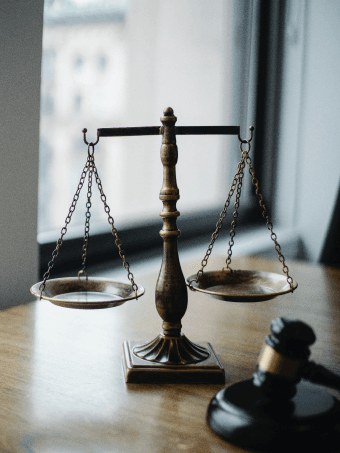
Understanding Trademark Infringement
A trademark is a valuable asset that helps businesses distinguish their goods or services from competitors in the marketplace. Trademarks can include brand names, logos, slogans, and even distinctive product packaging. Trademark infringement occurs when another company or entity uses a similar or identical mark in connection with similar goods or services, leading to confusion among consumers.
Financial Damages and Legal Proceedings
Trademark infringement disputes can escalate into complex legal proceedings that require substantial time, effort, and financial resources to resolve. Let's examine the potential financial damages that a company may face when accused of trademark infringement.
Litigation Expenses: Legal fees and court costs can quickly add up during trademark infringement cases. The expenses depend on various factors, including the complexity of the case, the jurisdiction involved, the duration of the litigation, and the chosen legal representation. On average, the costs of hiring attorneys and pursuing legal action can range from tens of thousands to hundreds of thousands of dollars.
Damages and Remedies: If the infringement is proven, the court may award damages to the plaintiff, aiming to compensate for the harm caused by the infringement. The damages can be calculated based on various factors, such as the extent of the infringement, the plaintiff's lost profits, the defendant's profits derived from the infringement, and any additional economic harm suffered. In some cases, the court may also grant injunctive relief, ordering the infringing company to cease using the trademark immediately. The financial burden of damages can vary widely but can potentially reach millions of dollars in high-profile cases.
Settlement Costs: In some instances, parties involved in trademark infringement disputes may opt for a settlement outside of court. Settlements can help avoid protracted legal battles and minimize the financial risks for both parties. However, settlements can still come with significant costs, including negotiated damages, attorney fees, and other terms agreed upon by the parties involved.
Rebranding and Market Impact: In addition to legal expenses and potential damages, companies found guilty of trademark infringement may be required to rebrand their products, services, or entire business identity. Rebranding can involve costs related to developing new trademarks, updating packaging and marketing materials, and advertising the changes to the target market. Furthermore, an infringing company's reputation and market standing may suffer, resulting in loss of customers, decreased sales, and damaged relationships with suppliers, distributors, and other business partners.
Estimates of Legal Proceeding Costs
Small to Medium-Sized Enterprises (SMEs)
For smaller businesses, trademark infringement cases can have a disproportionate financial impact. Legal costs for SMEs can range from $50,000 to $250,000 or more, depending on the complexity of the case, geographical jurisdiction, and the level of legal representation required. Damages and settlement costs can further add to the financial burden, potentially reaching tens or even hundreds of thousands of dollars.
Large Corporations
Large corporations typically have greater financial resources to handle trademark infringement cases. However, the costs involved can still be substantial. Legal expenses for major corporations can exceed $500,000 or even surpass several million dollars, considering the high-profile nature and prolonged duration of such cases. Additionally, damages and settlement amounts can climb into the multimillion-dollar range, depending on the scale of the infringement and the economic harm suffered by the plaintiff.
Conclusion
Trademark infringement can lead to severe financial damages for companies involved. Legal proceedings associated with trademark disputes can quickly accumulate significant expenses, including legal fees, damages, settlement costs, and the impact of rebranding. It is essential for businesses to prioritize trademark registration, ensuring that they do not infringe upon the rights of others, and taking proactive steps to defend their own trademarks when necessary. By doing so, companies can minimize the financial risks and preserve their brand's integrity and market position.
FAQs - The Impact of Trademark Infringement
1. What counts as trademark infringement?
Trademark infringement occurs when a business uses a mark that is identical or confusingly similar to a registered trademark in connection with related goods or services. This creates a likelihood of consumer confusion, suggesting that the products come from the same source or are endorsed by the trademark owner. Infringement can involve brand names, logos, slogans, or even product packaging.
2. What are the possible financial consequences if I'm accused of infringement?
The financial impact can be significant and includes litigation expenses, court-ordered damages, and potential settlement agreements. Legal costs alone may range from $50,000 to several hundred thousand dollars, depending on the complexity of the case. If found liable, you may also have to pay lost profits, rebrand your products, and cover the plaintiff’s attorney fees. In high-profile cases, total damages can run into the millions.
3. How can I protect my business from trademark infringement risks?
To avoid infringement, conduct a comprehensive trademark search before launching any new brand elements. Register your trademark early in all markets where you plan to operate, and monitor for conflicting uses. If you're uncertain about a name, logo, or slogan, consult with a trademark attorney or service provider. Proactive steps like these can help you avoid costly disputes and safeguard your brand’s long-term integrity.


